Christopher Columbus was one of the people I once admired so greatly. When I was much younger, I heard stories of how he “discovered” America and the kind of hero that he was. It got to a point whereby I almost got into a fight with someone who claimed that he didn’t discover America and that there were people in America before he got there. With my egoistic ignorance, I blindly disagreed to this claim only to realize after very little more research that the claim was true (little research — aka, I only had to google). There were people in the vast expanse of land before Columbus got there.
The way Columbus day is being perceived this year by justifiable backlashes, especially from Native Americans, made me do a little bit of more research only to find out that this man was not whom I thought he was. Inasmuch as Columbus is credited for some things he did (i.e. taking European civilization to the West), this article will touch on a brief description of Columbus and the three main reasons why he was not a hero but instead, a Narcissist and an opportunist who used everything possible to promote his self-centered ambitions.
He was a polarizing historical figure whose life has been defined, for many, by his amazing courage and intestinal fortitude. Nevertheless, such impressive characteristics should never cloud the fact that he supervised a murderous quest for material wealth that resulted in the absolute demise of a lot of people. Each year, as Columbus Day comes and goes in most parts of America, a question is raised — why do they celebrate his life?
Who was Columbus?
Christopher Columbus was the son of a wool merchant and was born in 1451 in the Republic of Genoa, or what is now called Italy. He later moved to Lisbon, Portugal, and finally settled in Spain, which remained his home base for the duration of his life.
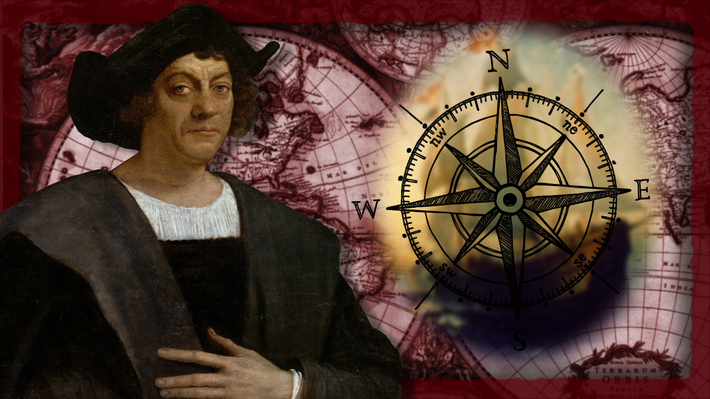
Columbus was an Italian explorer and navigator who sailed across the Atlantic from Spain in the hopes of finding a new route to Asia in 1942. Between 1492 and 1504, he made a total of four voyages to the Caribbean and South America and has been credited for opening up the Americas to European colonization and civilization. Getting an approval and sponsorship from King Ferdinand II and Queen Isabella I, the Catholic Monarchs of Aragon, Castile, and Leon in Spain, Columbus sailed Westward and claimed some lands for the Spanish throne.
There’s being a lot of back and forth about whether Columbus was a brave explorer or a vicious villain? Many people still have the notion that Columbus was a great legend who “discovered” America and brought European civilization to America. But I beg to differ as I analyze different ways Columbus wasn’t the hero many people (including me) once thought he was.
Discovery of America
Columbus did not discover America nor was he even the first European to visit the “New World” as many people believe. In fact, Viking explorers led by Leif Eriksson had sailed to Greenland and Newfoundland about four centuries (or more) before Columbus. Also, many people have pointed out over the years that for something to be discovered it must first be “lost,” and the millions of people already living in the New World certainly didn’t need to be “discovered.”
Additionally, there is a plethora of evidence pointing to numerous pre-Columbian expeditions to what we now call the Americas dating back hundreds of years before Columbus. Thus, this confiscates the myth that in the Middle Ages Europeans were the only ones with advanced technology that is sufficient enough to cross oceans.
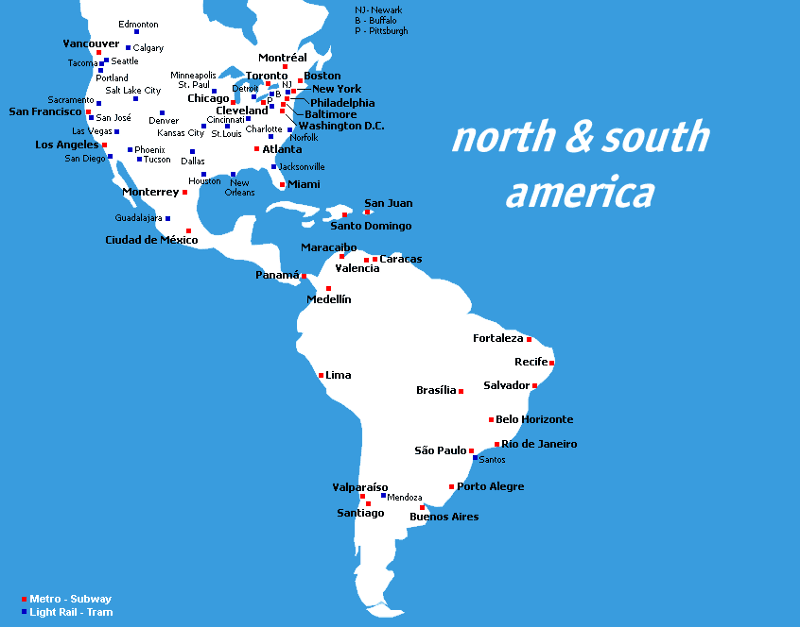
Genocide of the Native Americans
He and his crew brought awful diseases, such as smallpox, to the New World. The men and women of the New World (that is, the Natives) had no defenses and proper medical solution against the epidemic; hence, this led to the death of millions of Natives. However, this can be called an unintentional causation as he and his crew were not aware of the damages the infamous disease can cause to the lives of the people they met. Disease and environmental changes resulted in the destruction of the majority of the native population over time, while, in the midst of this, the Europeans continued to extract natural resources from these territories for their own benefit.
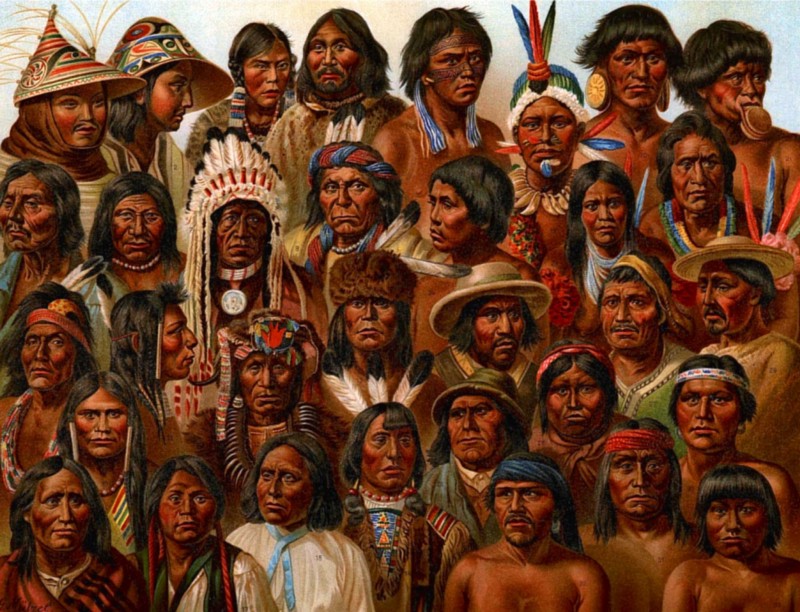
Transatlantic slave trade
If you’re an African, you’re probably wondering why this article relates to you. Well, Columbus was a slave trader who heartlessly took men and women away from their families in order to lessen his failure to find a new trade route. Most of the existing stories about Columbus’s voyages is largely taken from his journals; hence, those of Bartolome de Las Casas, a Catholic priest who was with Columbus on his third journey clearly wrote in details, the accounts of what happened. Thus, to say that the transatlantic slave trade began with Columbus’s voyages is not based on mere speculation but on the consolidation of well-documented events of the past.
After his observation of the vulnerability of the Arawaks (the people who dominated The Americas at that time), he said:
“They do not bear arms, and do not know them, for I showed them a sword, they took it by the edge and cut themselves out of ignorance. They have no iron. Their spears are made of cane. They would make fine servants. With fifty men we could subjugate them all and make them do whatever we want.”
In one of the notes that he had sent to the King and Queen of Spain to increase expectations, he promised: “as much gold as they need and as many slaves as they ask.” To fulfill this promise, soon thereafter he and his men kidnapped a number of the Arawaks and forced them to identify other sources of gold throughout the region as well as mine for gold and produce cotton. When gold was not found, the enraged Columbus oversaw the hunting of Indians for sport and dog food. Women and girls as young as nine or ten were used as sex slaves for the Spanish. Also, many Indians died under the encomienda slave system orchestrated by Columbus. This led to the importation of Africans who were more resistant towards diseases than the Natives to take charge of the plantations Columbus had planted. After Columbus’s first kidnapping of the Indians, he sent as many as 5,000 Indian slaves across the Atlantic (this number is more than any other individual). As a result of this, Columbus was responsible for setting up the infrastructure that would later become the Transatlantic slave-trade. Hence, the uncensored legacy of Columbus is not only the beginning of the transatlantic slave trade but the first recorded instance of a full-scale genocide of an indigenous people.
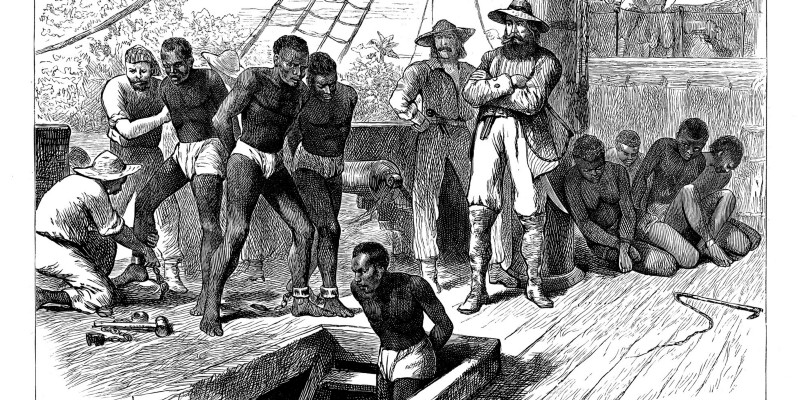
Today, Columbus has a controversial legacy. That is, he is remembered as a daring and path-breaking explorer who transformed the New World, yet his actions also unleashed changes that would eventually annihilate majority of the native populations he and his fellow explorers came across. Thus, for academics, teachers and even lay people (who are aware of his atrocities) to celebrate Columbus day is an intellectual dishonesty.
References:
Flint, V. (2017). Christopher Columbus | Biography, Voyages, & Facts. [online] Encyclopedia Britannica.
Getches, D., Wilkinson, C., and Williams, R. (2005). “Cases and Materials on Federal Indian Law,” Fifth Edition, Thomson West Publishers.
Gilio-Whitaker, D. (2017). Why the Legend of Christopher Columbus Is a Lie. [online] ThoughtCo.
Herring, H. (1962). “A History of Latin America From the Beginnings to the Present,” New York: Alfred A. Knopf.
HISTORY.com. (2017). Christopher Columbus — Exploration — HISTORY.com. [online].
Howard, Z. (2003). “A People’s history of the United States,” New York: Harper Perennial.
Hugh, T. (2005). “Rivers of Gold: The Rise of the Spanish Empire, from Columbus to Magellan,” New York: Random House.
Loewen, J. (1995). “Lies My Teacher Told Me: Everything Your American History Textbook Got Wrong,” New York: Simon & Schuster.
Mann, C. (2005) “1491: New Revelations of the Americas Before Columbus,” New York: Alfred A. Knopf.
McCormack, O. (2017). Columbus was a mass killer and the father of the slave trade. [online] IrishCentral.com.
Minster, C. (2017). Do You Know the Truth About Christopher Columbus?. [online] ThoughtCo.
Mitchell, L. (2017). Christopher Columbus Started the American Slave Trade. [online] Did You Know Facts.
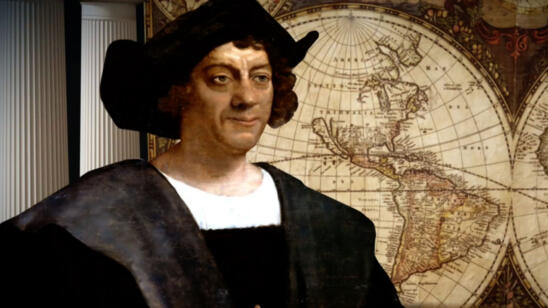
Of course he didn’t “discover” America because he didn’t land in America in 1492. He landed in parts of the Caribbean.